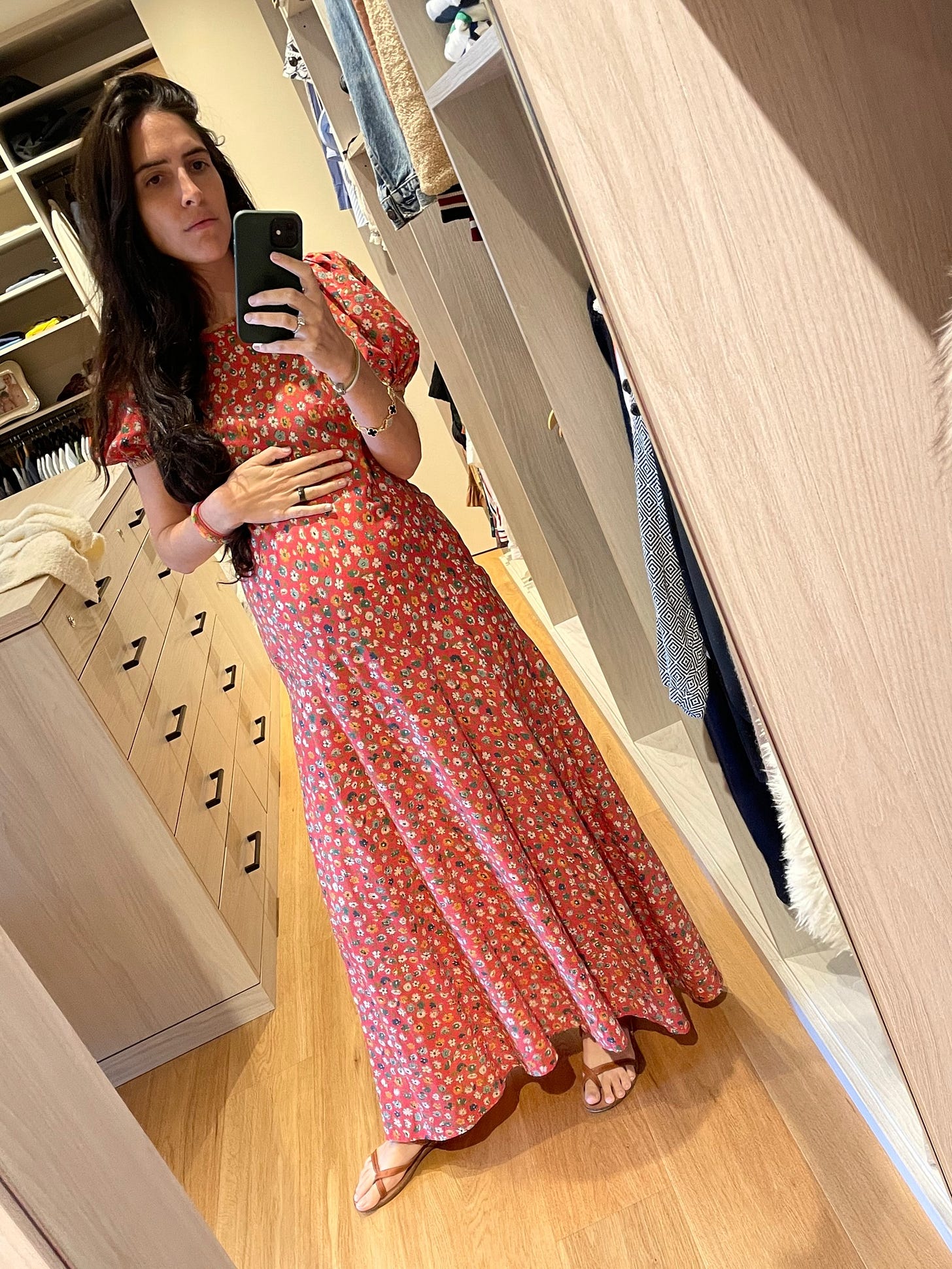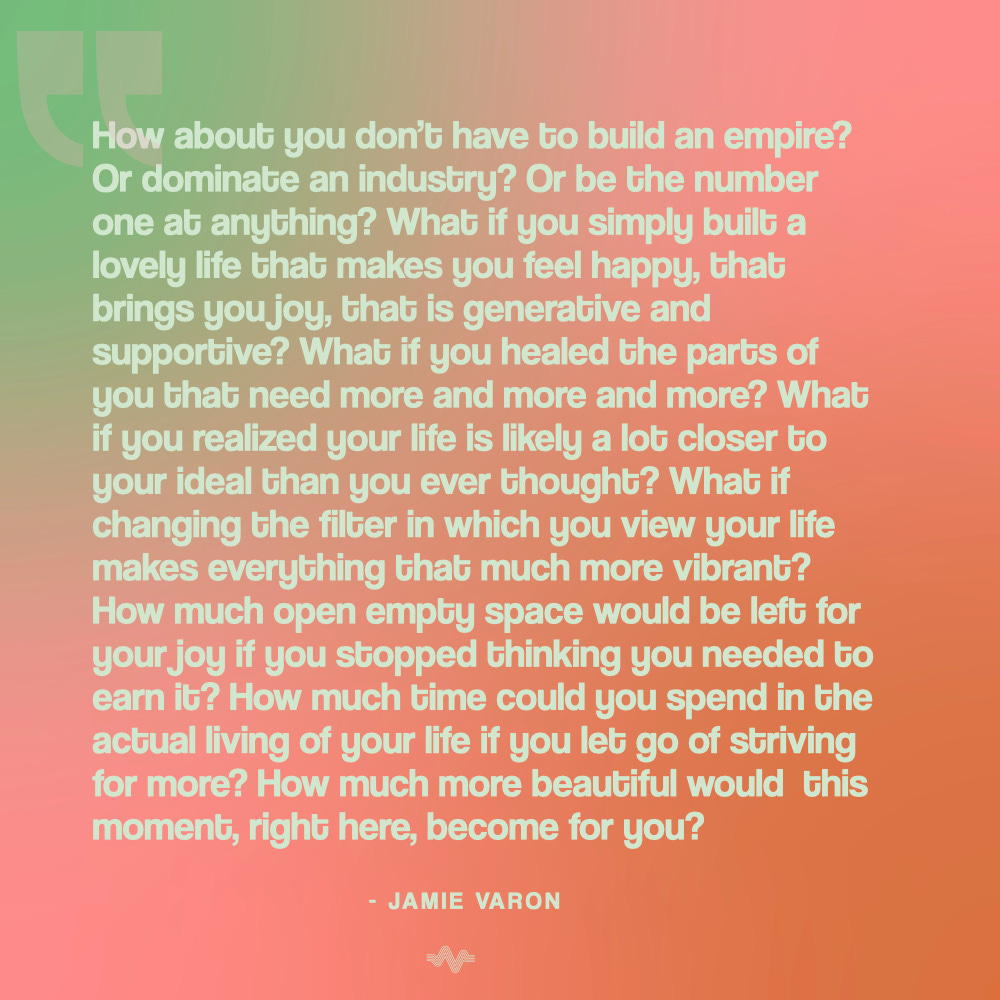Check your Pulse #61
on my mind
Hi, I’m Sari Azout and this is the the 61st edition of Check your Pulse, a tech and startups newsletter designed to make you feel human. Today’s issue is sponsored by Intent, a dev shop that has built over 160 apps and 50 MVPs for some of the most exciting startups, including Oura, Block Renovation, and Keeps. If you’re building something, reach out to them here.
Hello, friends.
For most of last year I was able to let an idea rattle around in my brain for a day or two, and then like magic, a fully formed think piece or even a whole essay would pop into my head. I can’t seem to find the headspace for that these days, but I’m trying something different today. Instead of a fully formed essay, I’m sharing a collection of evolving notes and things on my mind. More half baked ideas, less friction to hitting that SEND button.
🧠 I spent a lot of time going through old photos on my phone when I was in the hospital. One thing I noticed - there’s a big gap between seeing a photo of myself and appreciating it. It’s only days (or years) later that I appreciate how happy I was in that moment, or how fabulous I looked. We are so used to being grateful, but this often happens in the form of nighttime rituals (like the one I practice with my kids every night) that, while worthwhile on some level, are just an abstract reminder that on paper we have it pretty good. Gratitude and happiness, when we do genuinely feel it, arises from experiences we are currently having. I love the Kurt Vonnegut quote that goes: “And I urge you to please notice when you are happy, and exclaim or murmur or think at some point, ‘If this isn’t nice, I don’t know what is.’” When you feel pain, for example, simply remembering that you have been healthy in the past is a dull comfort compared to how wonderful it feels when you luxuriate in feeling good right in the moment. For me, right now, it’s wonderful that I have this warm drink. This laptop is so quick; it doesn’t lag like the old one. This chair is comfortable. The sunset views from my backyard are insane. There's nothing to say here to round it out — all I know is I’m spending more time noticing when I’m happy, and less time evaluating my life in my head. On that note, here’s a photo of my extremely pregnant self, taken yesterday.
🧠 Believing that things last is the root of our unhappiness. Nothing, no matter how good or bad, is going to last. In pain? It will pass. Sleep-deprived with a newborn? It will pass. There's a Jewish folktale about King Solomon asking a counselor for an adage that would make the happy man sad, and the sad man happy. The counselor, perplexed, asked a jeweler in the bazaar for advice. The jeweler inscribed on a ring: 'This too shall pass.' Call it obvious, but it’s taken me my entire life to half-master this axiom.
🧠 Status symbols change: Idleness and leisure were considered virtues in the ancient world, where today being busy is a badge of honor. Owning a car used to represent freedom. We’re now transitioning to a world where not having a car is freedom. In the past, going online was a luxury. Now, going offline is a luxury. There was a time when a feed full of selfies was cool. Now it’s lame. One of the most fascinating things about Poparazzi is that it shot itself to the #1 spot in the App Store by building its entire product around one of Instagram’s least important features: tagged photos. Status symbol changes represent new product opportunities.
🧠 On the topic of Poparazzi, it’s clear that the design space for even seemingly trivial software is huge. We’ll continue to see successful new product variants in many categories. Why? Because software today is as much a utility as it is an expression of psychology and culture. For example, Startupy is my own interpretation of how the world of work/collaboration is changing, what new information graphs are missing, and how people might want to search in conditions of information abundance. The product itself reflects how I see the world. If product is art and philosophy, it follows there’s room for many interpretations and dynamics are less winner take all than we’ve been led to believe.
🧠 The more my career takes me in the direction of creative projects that require peace and quiet, alone time, and imagination, the more I realize that being productive has very little to do with high-stakes, high intensity conferences, back to back meetings, can't-catch-a-breath to-do lists, or endless projects I’ll half-ass due to exhaustion. What makes work good is time to read, think, slow down, and create a rich inner life. In other words, good work comes from slowing the fuck down and trusting that good ideas will come through if we give ourselves enough time and space to see them. The biggest lie founders tell themselves is that if they slow down they’ll get left behind.
🧠 As I’m spending more time on Startupy, I’m thinking about how I want to build this company. I’m just as interested in what I’m building (the product) than in how I’m building it (the process). I’m still thinking through what matters to me but I keep coming back to one thing: strip away the bullshit. For customers - it means no default on notifications, or unskippable ads. It means calling them humans, not consumers. For us as a company it means no meetings when an email will do. It also means keeping the team as small as possible and finding a way to do things without hiring more people. It means building the business at a pace that suits my sanity. And it means really, really caring. I want everything we do to be tasteful.
🧠 Products we’re using at Startupy that I’m obsessed with: Mercury (banking), Linear (project management), Figma (design), Typeform (forms), Webflow and Zapier (for a drop we’re launching next week), Airtable (database), Stripe and Memberful (payments and member management). What we’re still looking for: Analytics (we’re using Fathom but I’m not sold and I hate Google Analytics), Budgeting/Finance (waiting for Runway to launch), Community Software (am I the only person in this world who profusely dislikes Discord?) and better ways to coordinate and distribute equity/revenue to contributors (looking at Fairmint, Rally, Sourcecred, and others… but the solution space still feels ripe here).
🧠 Changes in tech and culture have opened the possibility space for how groups can work together (Packy wrote a bang post yesterday exploring this). A core part of the long-term thesis for Startupy is that a new form of organizing that makes it easy for groups of people to collaborate is not just possible, but optimal. Corporate legacy structures are outdated. Old social technologies like coops are ready to be paired with modern technologies (like tokens) that can align the incentives of collaborators in new ways. For many people, the idea of a long-term career is being replaced by a string of interesting projects and flexible ownership will power this shift. A lot of the conversation around “redefinition of teams” and new employment models is happening in DAOs but we need more user interfaces to help us understand the possibilities, and to help us bridge the gap between web2 and web3.
🧠 Self-organization and decentralized power are one of the strongest themes of the blockchain/DAO/decentralized movement. I’m drawn to the ideals of governing collectively, where decision-making power is shared among those doing the work. But I have a hard time reconciling the idea of no top-down control with the reality that a good product requires a certain degree of “founder dictatorship” to embody a singular and coherent identity.
A Union College study found that fraternity students saw a 0.25 drop in GPA, but a 36% rise in lifetime income known as the “Bro Wage Premium.” Personal networks matter. 🍹
I enjoyed taking this just launched personality test, by Ray Dalio. 🔮
Great Marc Andreessen interview. I was particularly drawn to his remarks on Reality Privilege, which I wholeheartedly agree with. The vast majority of humanity, lacks Reality Privilege -- their online world is, or will be, immeasurably richer and more fulfilling than most of the physical and social environment around them... Most people will be able to express far fuller versions of themselves and have richer and more fulfilling lives online than they would have in the old purely offline world… We should build -- and we are building -- online worlds that make life and work and love wonderful for everyone, no matter what level of reality deprivation they find themselves in. 🖥️
This: The goal is resonance - resonated. When two people work on a shared project – a joke, gossip, a product, an essay – and are able to understand and build on each other, that’s the peak of the human condition. 💯
Whoa. Jumping from 25,000 feet without a parachute and landing safely. 🪂
Mare of Eastown is the best show I’ve watched in a long time. Kate Winslet deserves all the awards! 📽️
This list of the 28 best affordable hotels in the world is giving me serious wanderlust. ✈️
LOVE the idea of a human library. 📚
Startups on my radar 🚀
Meetsy: Software that automatically pairs your community members for 1:1s - scaling intimacy.
June: Instant analytics, on top of Segment.
Marco: Curated experiences that bring teams together
Party by Numbers: A NYC-based events company that delivers a whole party - food, bev, decor, and flair - direct to your door.
Blank Street: A small format coffee-shop that is actually a platform to launch your own business.
A brilliant Twitter account that resurfaces fascinating discussions that shaped the tech industry. 📝
So real. What MVP really means. 👇🏾

If you’re wondering who’s behind this newsletter:
My name is Sari Azout. I am a design-thinker, strategist, early stage startup investor at Level Ventures, and founder of Startupy (coming soon). My mission is to bring more humanity and creativity to technology and business.
Want more?
Follow me on Twitter, Medium, and Instagram. Or get access to my second brain. 🧠
Thanks for being here!










